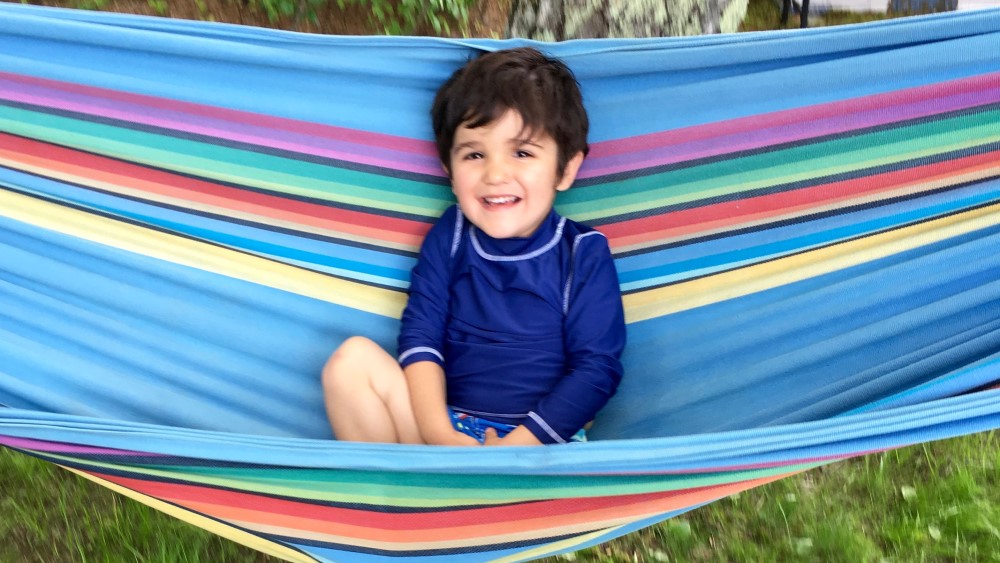A quick response leads to long-term health: Wes’s story

The day after he was born at a local hospital, a nurse came over to Wesley Schulman’s bassinette for a routine temperature check. The thermometer read 91°F. Thinking the thermometer was broken, she got a new one and tried again. It gave the same reading. Wesley’s chilly hands and feet and low body temperature gave clear indication that something was not right.
Wesley, or simply Wes, was then transferred to the Neonatal Intensive Care Unit (NICU) at Mass General for Children (MGfC). His father, Daniel, of Wellesley, Mass., joined him in the ambulance while his mother, Stacey, recovered and waited to be discharged. After a few tests, Wes was diagnosed with a large subgaleal hemorrhage, a complication from Stacey’s vacuum-assisted delivery that causes bleeding between the skull and the scalp. Without quick treatment, it can lead to shock and brain damage.
The care team at MGfC acted quickly, putting into motion a series of crucial treatments and actions. “When we met Wes, there were many things that needed to happen fast,” said Carlos Torres, MD, a chief resident at MGfC who cared for Wes. “However, the most important lesson that I learned was how important it was to communicate and support his parents. They were vital members of the medical team.”
Right away, the NICU staff intubated Wes, followed by blood transfusions, a brain ultrasound and an MRI. “It was hard to see his little face because he had a mask to protect his eyes and he was on a feeding tube,” said Stacey. “He was also groggy from medication.”
Day by day, Wes made steady progress. When he was 4 days old, Stacey got to hold her newborn son for the first time. After 11 days in the NICU, he was discharged on just one medication.
“Every day, a piece of equipment came off or he was weaned off of a medication,” said Stacey. “It was like watching a new baby come out from underneath all these tubes and monitors. And holding him for the first time was amazing, even if he still had the ventilator.”
Caring for infants at risk for brain injury is a team effort during hospitalization and after discharge. Wes’s care team helped Wes become the talkative, inquisitive and sports-loving toddler he is today. “I am happy to say that Wes is a healthy little boy who is meeting all of his developmental milestones,” said Kalpathy Krishnamoorthy, MD, a pediatric neurologist at MGfC.
With the type of complication that Wes had, it is crucial to think about long-term brain health, said Sara Bates, MD, director of the Infant Brain Center at MGfC and a physician who cared for Wes in the NICU. “Wes is developing normally and we are so glad to see his success,” said Bates. “Wes is a wonderful example of a team effort and family-centered care on the part of his entire care team. We are excited to see Wes progress and continue to meet his milestones.”
